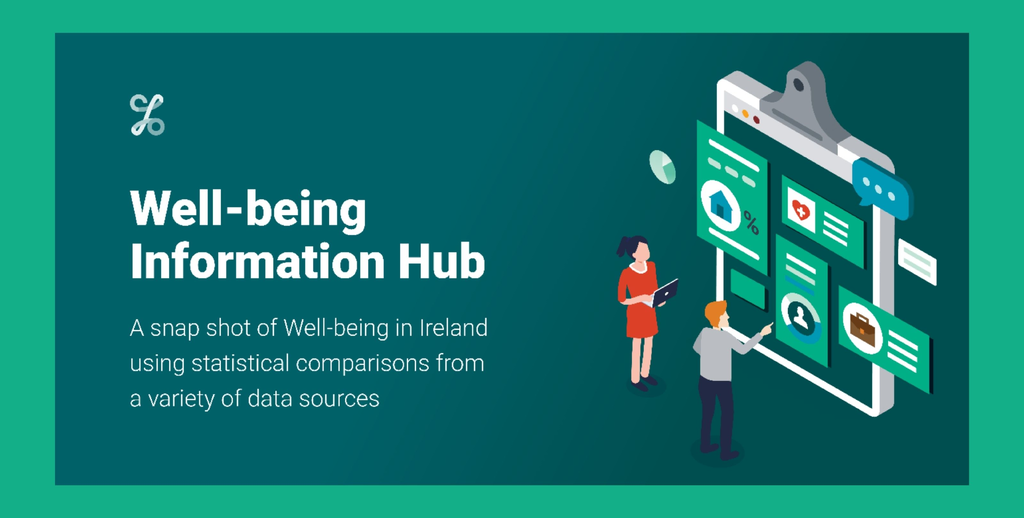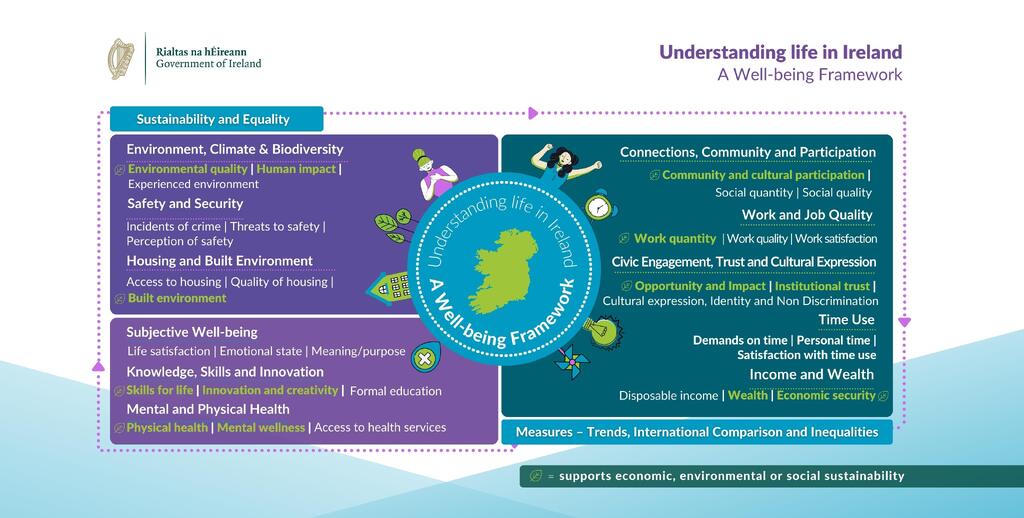
The Organisation for Economic Cooperation and Development (OECD) note on their website page Measuring well-being and progress that “GDP is a well-established tool for measuring economic output, but it does not tell us whether life as a whole is getting better, and for whom. The OECD Well-being Framework helps to monitor societal progress “beyond GDP” and is informing people-centric and integrated policy making across the many dimensions that matter for people, the planet and future generations. The Framework provides a compass to understand how human well-being is evolving in the context of the ecological and digital transitions, and what key actions are needed to support it.”
The Department of An Taoiseach note on their website page Well-being and the Budget that “The Well-being Framework and the analysis of the accompanying dashboard features at key points in the Budget process annually. This includes at the National Economic Dialogue, in the Summer Economic Statement and in Budget Day documentation. This supplements existing work to provide an additional holistic understanding of quality of life issues into the discussions and publications which surround Budget decision-making.”
On the Central Statistics Office’s Well-being Information Hub the CSO notes that it “reports on the Well-being of the nation and attempts to answer this essential question – how we are doing as a country, as communities and as individuals.” They go on to say that “It covers the broad range of life in Ireland – from education, to health, to work and so many more facets of Irish life. Across the 11 themes of Well-being (based on an international framework developed by the OECD), this information hub provides dynamic updates for the many Well-being indicators which comprise of the dimensions of Well-being.”

On July 31st, 2024 the Government published Understanding Life in Ireland: The Well-Being Framework 2024 and they note that “While performance is positive on average, it is important to recognise that not everyone feels this progress evenly, and a number of groups perform less well than the average across a number of areas - in particular, this year, single parent households.” (p4)
Under the theme Well-being and Equality the report notes that the “CSO Well-being Information Hub reports each indicator by different groups, allowing the identification of groups that perform less well than other comparable groups across multiple dimensions. This year’s report has identified women, immigrants/non-Irish, unemployed people, people with long-term illness or disability, single-parent households, households with lower incomes, and households in rented accommodation.” (p9)
On page twenty-eight of the report, under the heading Equality, it states that “The lifelong learning rate is explored on the CSO’s Well-being Information Hub across principal economic status and age groups. In Q4 2023, the lifelong learning rate was 5.3% of those at work, and 6.4% for unemployed people and 10.6% for ‘other’.” In this quote the term ‘other’ covers people engaged in home duties, retired or unable to work due to permanent sickness or disability. The report notes that results for these groups were too small to report. The Lifelong Learning rate was one of the indicators where Ireland was deemed as performing below the international average.